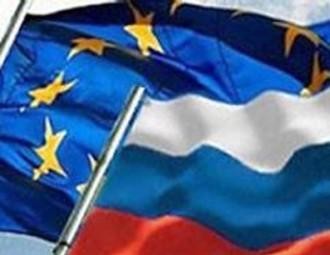Point of view: Belarus caught in the middle between EU and Russia

Belarus’ future is torn between the potentially positive implications of the lifting of EU sanctions and the current major losses suffered by the national currency due to Russia’s economic crisis.
On Monday, February 15th, the EU decided to put an end to a set of sanctions, in place for five years, against Belarus. Travel restrictions, the freezing of personal assets, and sanctions on state-owned firms were in place since the repression of political opposition following the 2010 presidential elections.
Minsk seeks closer ties with EU
Monday’s decision concerns 170 government officials, including President Aliaksandr Lukashenka, as well as three national firms: BelTechExport, Beltech Holding, and Spetspriborservice. Only four individuals directly implicated in earlier repressions against members of the opposition are still under the sanctions. The EU had temporarily suspended sanctions following the presidential elections held in October 2016 that saw Lukashenka secure a new term with more than 83 percent of the total vote.
The scrapping of EU sanctions is a testament to President Lukashenka’s recent policies. Indeed, Belarus’ head-of-state has been trying, since the beginning of 2015, to develop closer relations with the EU by releasing political prisoners, a gesture widely appreciated by Brussels. In addition, Minsk has also tried to assert itself as a key regional player throughout the mediations between European partners, Russia and Ukraine.
While international observers have criticised the October elections, the latest ballot was carried out without major human rights violations. EU officials repeatedly stated that Monday’s goodwill gesture is a first tentative step aimed at testing President Lukashenka’s long-term intentions. The facilitation of EU travel visa policies, a major demand by Belarusian authorities, would necessitate additional reforms by Minsk, such as the enhancement of its local private media sector and the enabling of a wider sociopolitical discourse unhindered by government controls.
Belarus suffers from inflation, reliance on Russia
While the regional position of Belarus may be improving, the country’s domestic economic situation is quickly deteriorating. The local economy is largely dependent on Moscow’s investments and subsidies. However, the current crisis is leading to a net loss of value of the Belarusian Ruble (BYR). The local currency hit a historic low against the USD of more than 22,000 BYR more than 24,000 BYR against the Euro.
Belarus had initially planned for a gradual loss of value due to the current economic hardships that would lead to a USD/BYR exchange rate of 1:18,600 by December 2016. The 2016 national budget had also been predicated on $50 oil; with the current plunge of oil prices one of the main factors affecting the local economy.
Despite being faced with the current structural economic crisis, President Lukashenka is continuing to push forward with socialist-style policies linked to the non-optimal management of assets and high employment rates aimed at keeping social and political stability. At this point, the government and the national bank have not yet taken any measures to combat currency devaluation, as they speculate that the situation may favour the export-driven sectors of the national economy.
The next major economic policy change is likely to remain the redenomination of the Belarusian Ruble slated to occur in July 2016.
President Lukashenka is expected to remain torn between foreign policy successes and a faltering domestic economy. Specifically, Belarus seeks to maximise its relatively limited assets by bargaining between the EU and Russia for a better position. However, the devaluation of the national currency along with high inflation rates and the lack of structural reforms will continue to put a strain on the local population.
As long as the government is able to pay public sector wages, Belarusian society is expected to remain docile, with the economic crisis unlikely to lead to any major unrest or political instability. In addition, given Minsk’s current attempts to reach out to the EU, Moscow is likely to continue to subsidise the local economy in a bid to avoid losing its partner and buffer.
As such, while the economic health of the country is far from reassuring, President Lukashenka may weather the storm by relying on current regional geopolitical tensions, which are pushing the EU and Russia to strive to avoid the breakdown of Belarus’ economy.
-
03.01
-
07.10
-
22.09
-
17.08
-
12.08
-
30.09








































